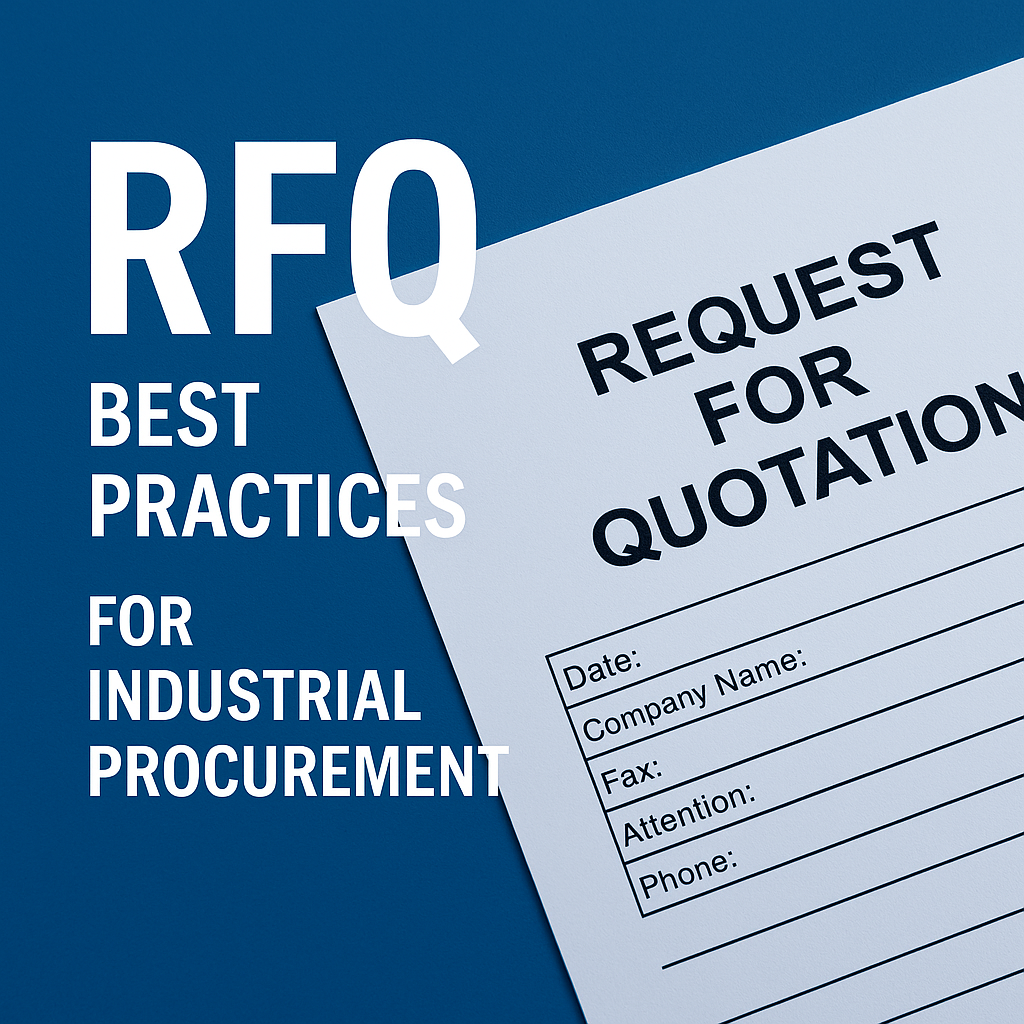In industrial and energy projects, a well-prepared Request for Quotation (RFQ) is the first step toward successful procurement. Yet, many RFQs are incomplete, leading to delays, cost overruns, and misunderstandings between buyers and suppliers. This article highlights best practices that help procurement teams issue RFQs that result in accurate and timely quotations.
Provide Complete Technical Information
- Include OEM/brand, model, and part numbers.
- Add detailed specifications: material grade, pressure class, standards (API, ASME, IEC).
- Attach drawings (2D/3D) and datasheets
👉 Why it matters: Vendors cannot quote accurately if details are missing; they either overprice or delay responses.
Clarify Quality and Compliance Requirements
- State testing and certification needs (EN10204 3.1/3.2, NDT, FAT).
- Mention country-of-origin restrictions.
- Confirm compliance with export-control and sanctions regulations.
👉 Why it matters: Ensures suppliers understand compliance upfront, avoiding rework and disputes later.
Define Logistics and Delivery Terms
- Specify delivery deadlines and Incoterms (EXW, FCA, DAP, DDP).
- Indicate destination and any special packaging requirements.
👉 Why it matters: Delivery terms impact cost, lead time, and responsibilities.
Include Commercial Conditions
- Share budget range if available.
- Define payment terms (e.g., Net 30, LC).
- State if vendor must be on an approved vendor list.
👉 Why it matters: Early clarity avoids later misalignment.
Structure the RFQ Clearly
Use a standardized checklist or template.
Divide information into sections: company/project, contact, item details, QA/compliance, logistics, commercial.
👉 Why it matters: Structured RFQs reduce email back-and-forth and make evaluation easier.
Set a Realistic Response Timeline
- Give vendors adequate time for complex items.
- Highlight urgent items separately.
👉 Why it matters: Unrealistic deadlines often result in incomplete or inflated quotes.
Communicate Expectations
- Clarify evaluation criteria (price, delivery, compliance, service).
- State if alternative solutions (reverse engineering, equivalents) are acceptable.
👉 Why it matters: Vendors can propose value-engineered options if allowed.
Conclusion
A well-prepared RFQ saves time, reduces risk, and builds trust between buyers and suppliers. By following these best practices, procurement teams can accelerate vendor responses and secure more competitive offers.
At Nexa Supply Chain, we help clients structure RFQs, qualify vendors, and deliver compliant solutions on time.
📩 Contact us at info@nexasupplychain.com for support with your next RFQ.

